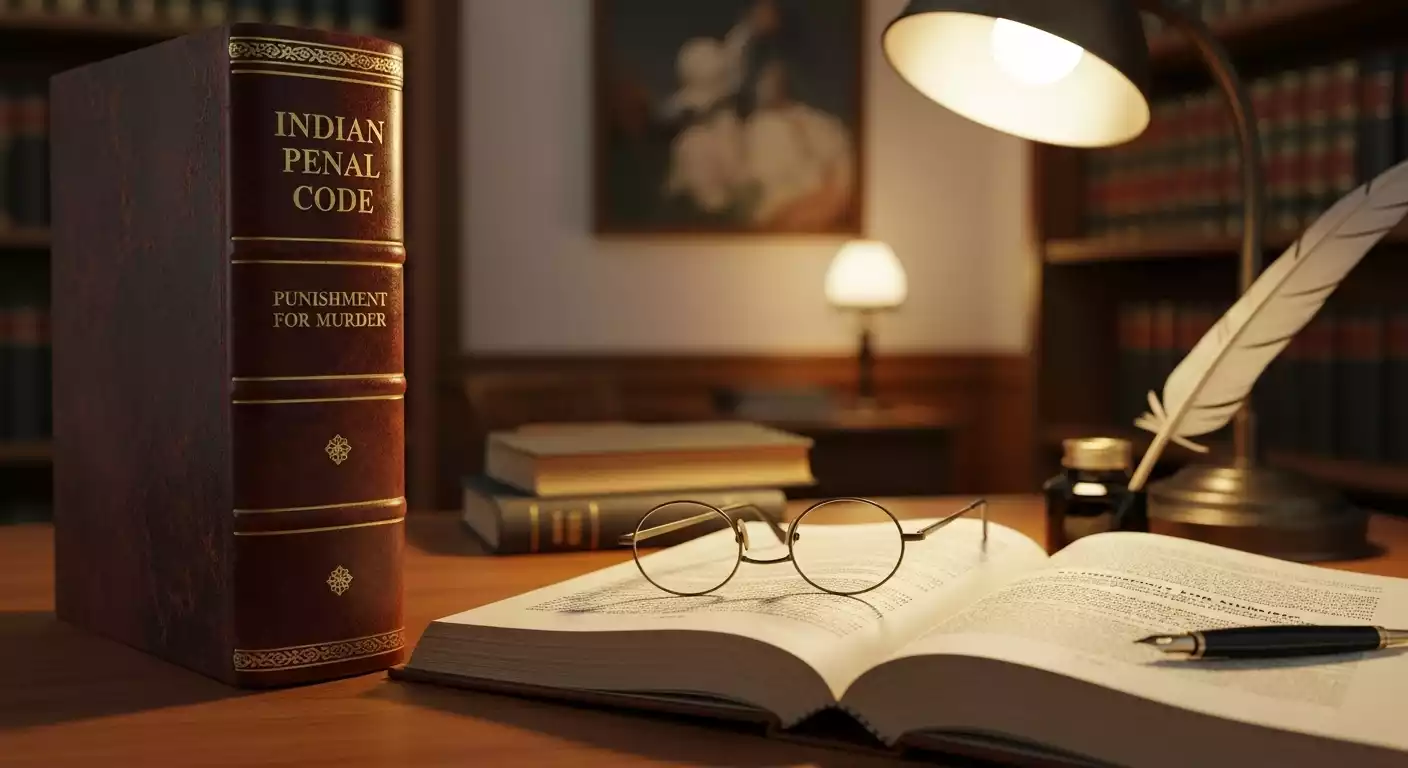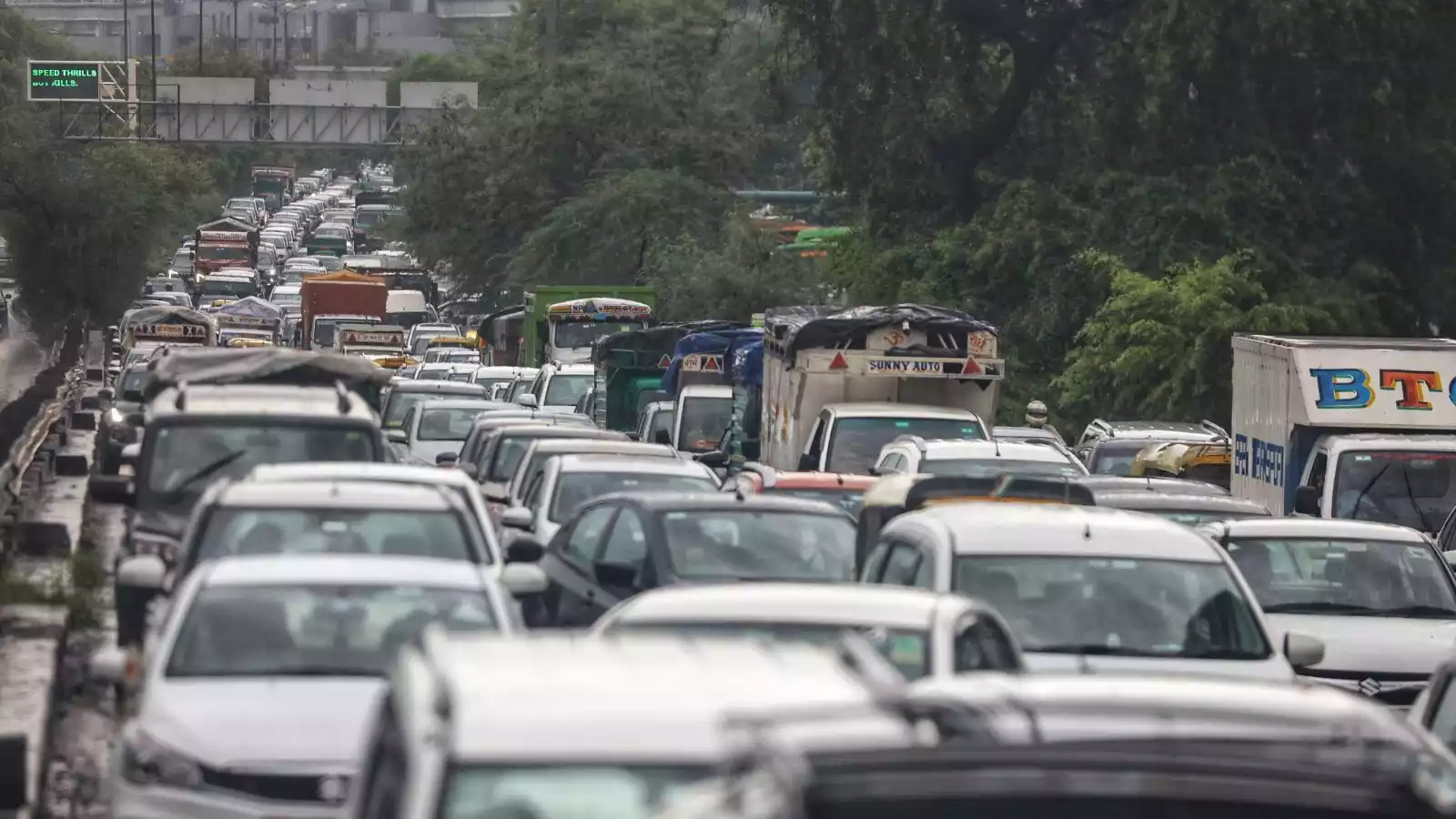IPC Section: 10 Most Important Sections, Punishments, and Legal Rights
If you’re searching on Google for “IPC Section” or “IPC Dhara,” chances are you’re not just looking for an old law book—you want to know the legal reality today.
You’re not alone.
India’s criminal justice system has undergone a major, historic change. The Indian Penal Code (IPC), 1860, which defined crime and punishment for over a century and a half, is now in a new avatar: the Bharatiya Nyaya Sanhita (BNS), 2023.
Does this mean the IPC is completely ‘finished’? Have the sections that impact your daily life, like Section 420 (Cheating) or Section 302 (Murder), been completely altered?
As a content veteran and deep-research analyst, my straight answer is: No, the essence of the IPC hasn’t been destroyed; it has been revitalized with a ‘justice-centric’ approach.
This article isn’t a pile of complex legal jargon. It’s your Elite Guide that gives you simple, clear, and actionable answers to these three biggest questions:
- What has changed between the IPC and BNS? (The logical reorganization of sections).
- What is the foundation of the IPC (now BNS)? (The simple difference between IPC vs. CrPC).
- What are the 10 most important IPC Sections for the common citizen (with BNS reference)?
Move forward and clear the legal confusion that has perplexed millions of Indians.
What is an IPC Section? (Indian Penal Code) – The Foundation and History
The full form of IPC is the Indian Penal Code, 1860. As the name suggests, it was the principal law in India that defined crimes and prescribed punishments for them.
The Full Form and Purpose of the IPC
The main purpose of the IPC was to provide a common, comprehensive code for offenses committed anywhere in India. It tells us what “murder” is, what “cheating” is, and what punishment the court can impose for these acts.
- The Code was divided into 23 Chapters and 511 Sections.
- It was implemented under British rule in 1860, prior to India’s independence, with Lord Thomas Babington Macaulay playing a key role in its drafting.
- 💡 Expert Fact: It doesn’t just specify punishments; it also defines General Exceptions under which an act (like one done in self-defence) is not considered a crime.
IPC vs. CrPC: The Difference Between Action and Outcome
To understand the law, you must clearly know the difference between two things: the IPC (Indian Penal Code) and the CrPC (Code of Criminal Procedure).
| Aspect | IPC (Indian Penal Code) | CrPC (Code of Criminal Procedure) |
| Role | Substantive Law: What is the crime? | Procedural Law: What to do when a crime occurs? |
| Function | Defines the crime and its punishment. | Dictates the process of investigation, arrest, bail, and trial. |
| Simple Analogy | It’s the doctor’s report: the disease (crime) and the medicine (punishment). | It’s the method of treatment: how the disease will be diagnosed, and the procedure at the hospital (Court). |
| Current Name | Has become the Bharatiya Nyaya Sanhita (BNS). | Is now the Bharatiya Nagarik Suraksha Sanhita (BNSS). |
My Experienced Opinion (Expert Opinion): People often confuse these two. Remember, when the police arrest someone or file an FIR, they are following the procedure of CrPC/BNSS. But they charge that person under the sections of the IPC/BNS. This is the fundamental difference between the ‘medicine’ and the ‘method of treatment’.
The Biggest Change: Is the IPC Section Truly ‘Finished’ in 2024?
This is the most-searched and most confusing question.
Introduction of the Bharatiya Nyaya Sanhita (BNS), 2023
The Parliament of India passed three new criminal laws in December 2023, which came into effect from July 1, 2024. The IPC has been replaced by the Bharatiya Nyaya Sanhita (BNS), 2023.
The Idea Behind BNS: To replace the punitive law created by the British with a law that focuses more on ‘Justice’ and ‘Rehabilitation’ rather than ‘Punishment’.
Key Structural Differences between IPC (1860) and BNS (2023)
‘Finishing’ the IPC is not just a name change; it’s a Logical Reorganization.
| Feature | IPC (1860) | BNS (2023) |
| Total Sections | 511 | 358 |
| Total Chapters | 23 | 20 |
| Major Changes | Around 190 sections were changed, removed, or reorganized. | Many sections of the IPC were merged. Sedition was removed. New crimes like Mob Lynching and Organized Crime were added. |
Hard-to-Find Fact: In the BNS, approximately 20 sections of the IPC have been completely abolished (e.g., Section 377, Sedition), and about 19 new sections have been added.
Simple Analogy (New Library): The IPC was like an old, large library where the books (sections) were a bit disorganized. The BNS is like a new, modern library that has reorganized the same books (removing or changing a few) in a new and logical way, making them easier to find. For example, IPC Section 498-A (Cruelty by Husband or Relatives) was in Chapter XXA, whereas BNS has integrated it into the chapter on women’s offences.
The 10 Most Important IPC Sections for the Common Citizen (with BNS Reference)
It’s impossible for a common citizen to know the entire law, but understanding some fundamental sections for your and others’ safety is crucial. Here is an analysis of the 10 most important IPC (now BNS) sections every Indian should know. We’ve divided them into three broad categories:
1. Offences Against Human Body
| IPC Section | Name of Offence | BNS Section | What You Need to Know (In Simple Language) |
| Sec. 302 | Murder | Sec. 101 | This is the most serious section, involving an act done with the intention of killing someone. Punishment: Life Imprisonment or Death Penalty. The BNS provision is now in Section 101, with stricter rules added for Mob Lynching. |
| Sec. 307 | Attempt to Murder | Sec. 107 | This applies if you intended to kill someone, but the person survived. Punishment: Up to 10 years of imprisonment. |
| Sec. 323 | Voluntarily Causing Hurt | Sec. 114 | This applies when a person intentionally slaps, pushes, or causes an injury that is not grievous. It is a bailable offence. |
2. Offences Related to Property & Cheating
| IPC Section | Name of Offence | BNS Section | What You Need to Know (In Simple Language) |
| Sec. 378 | Theft | Sec. 303 | When a person dishonestly takes your Movable Property without your consent, with the intention to keep it. Punishment: Up to 3 years of imprisonment. |
| Sec. 420 | Cheating and Dishonestly Inducing Delivery of Property | Sec. 318 | When someone dishonestly convinces you to give them property or alter a valuable security. This is the most used section in online fraud and scams. Punishment: Up to 7 years of imprisonment. |
| Sec. 441 | Criminal Trespass | Sec. 331 | Forcibly entering your house, shop, or property without your permission, or with the intent to intimidate you. |
| Sec. 499 | Defamation | Sec. 356 | Intentionally harming a person’s reputation through words, signs, or visible representations. (Punishment: Up to 2 years upon proof of crime). |
3. Offences Against Women & Family
| IPC Section | Name of Offence | BNS Section | What You Need to Know (In Simple Language) |
| Sec. 354 | Assault or Use of Criminal Force to Woman with Intent to Outrage her Modesty | Sec. 74 | This section relates to molestation or attempt at sexual assault. Punishment: 1 to 5 years of rigorous imprisonment. The BNS has made it tougher. |
| Sec. 376 | Rape | Sec. 64 | The BNS has broadened the definition of rape and has provisions for stricter penalties, including the death penalty in certain cases. |
| Sec. 498A | Cruelty by Husband or Relatives | Sec. 84 | This section mainly provided protection to married women in cases of harassment for dowry, mental, or physical cruelty. The BNS provision is now in Section 84. |
The Right of Self-Defence: How Far Does the Law Protect You?
One of the most important parts of the IPC/BNS is the exceptions that specify when an act is not a crime. The most crucial of these is the Right of Private Defence.
- This right was granted in IPC Sections 96 to 106, which is also protected in the BNS.
- Simple Analogy: The right to self-defence is an “emergency brake” given for your protection. You can only pull it when the danger is immediate and serious. This means you can only use as much force as is necessary at that moment to save yourself.
- The Most Important Rule: If you have time to seek help from Public Authorities (like calling the police), the right of self-defence is not available. This right is effective only when the threat is immediate and there is no other legal option.
The Legal Process: The Role of IPC Sections from FIR to Bail
The sections of the IPC don’t just specify punishment; they determine how the legal process will proceed.
The Process of Filing an FIR and the Importance of IPC Sections in it
The FIR (First Information Report) is the first step of the criminal procedure. The main function of the IPC/BNS sections here is to decide whether the crime is Cognizable or Non-Cognizable.
| Feature | Cognizable Offence | Non-Cognizable Offence |
| Examples | Murder, Rape, Theft (Sec. 302, 376, 378) | Defamation, Voluntarily Causing Simple Hurt (Sec. 323, 499) |
| Police Power | Police can arrest the accused without a warrant and start the investigation. | Police can neither arrest nor start the investigation without a Magistrate’s order. |
Expert Opinion: 90% of people think the police will file an FIR immediately. The truth is that the IPC sections themselves determine whether it is a cognizable offence, on which the police can file an FIR under CrPC/BNSS without a Magistrate’s order.
How is the Determination Made for Bailable and Non-Bailable Offences?
Criminal sections are mainly divided into two categories, and this division determines how you will get bail after an arrest:
- Bailable Offence: Less serious crimes (like Sec. 323). In these cases, bail is your right, and it can even be obtained from the police station (Thana).
- Non-Bailable Offence: Crimes of a serious nature (like Murder or Rape). In these cases, bail is not your right; it depends on the discretion of the Court (Judge).
Simple Analogy (Traffic Challan): A Bailable Offence is like a ‘traffic challan’: you pay a fine (bail) and leave immediately. A Non-Bailable Offence is like a ‘serious accident’: you have to be produced in court, and the Judge decides whether you can get bail or not.
“General Exceptions”: When is an act not considered a crime?
Before punishing anyone under BNS/IPC, the court checks whether the act falls under these ‘General Exceptions’.
- Accident: If an act occurs by accident while doing a lawful act, without criminal intent or knowledge (e.g., injuring someone by accident when the axe slips while cutting wood).
- Act Done by a Minor: Any act done by a child under 7 years of age is not a crime. An act by a child between 7 and 12 years will be a crime only if it’s proven that they had sufficient understanding of the consequences of their action.
Beyond IPC: 5 Big, Justice-Centric Reforms of the Bharatiya Nyaya Sanhita (BNS)
The BNS is not just a reorganization of sections; it’s an ideological shift in our criminal justice philosophy. While the IPC was mainly focused on Punishment, the BNS emphasizes Justice and Deterrents. These 5 reforms directly affect the common citizen and the changing nature of crime:
1. Stricter Laws on Mob Lynching and Organized Crime
The IPC had no specific section for mob lynching, making it difficult to punish perpetrators. The BNS has directly addressed this:
- Mob Lynching: BNS has added a new and stringent provision for mob lynching under murder. If a group of five or more people kills someone based on race, caste, community, gender, place of birth, or any other ground, all can be sentenced to Death Penalty or Life Imprisonment. This is a big step to deter citizens from committing violence as part of a crowd.
- Organized Crime: The BNS has defined “Organized Crime” and “Petty Organized Crime.” This includes crimes like extortion, land grabbing, and contract killing. Stricter punishments have been prescribed for this, which will help curb syndicate crimes that have been running for years.
2. Termination of Sedition and Definition of “Threat to India’s Sovereignty”
The controversial IPC Section 124A (Sedition), which was carried over from the British era and often criticized, has been completely removed.
- Instead, Section 150 has been added in the BNS, which defines acts that endanger the sovereignty, unity, and integrity of India.
- Key Difference: Now, a person can be punished not for criticizing the government, but only for endangering India’s sovereignty through violence, illegal means, or armed rebellion. This draws a clear line between freedom of expression and anti-national activities.
3. Broader and Clearer Definition of Consent in Sexual Offences
The importance of Consent has been made much clearer in sections related to women’s safety.
- The BNS now mandates the concept of “Zero FIR”: This means that for any crime, the victim can file an FIR at any police station, even if the crime did not occur within that station’s jurisdiction. This ensures quicker action in women’s offences.
- The BNS has also included Community Service as a form of punishment. This is for petty offences where the offender can be made to do socially useful work instead of being sent to jail.
4. Setting Time-Limits for Expediting Justice (Time-Bound Justice)
To address the excessive time taken in the process, the BNS has prescribed strict time-limits for several procedures:
- Victim’s Right to be Heard: BNS provides that a sentence of 7 years or more will not be given in any case without giving the victim an opportunity to be heard.
- Time-Limit for Judgment: Under the BNS, the Court must pronounce its Judgment within 45 days of the conclusion of the hearing in criminal cases. The IPC had no such strict time-limit.
5. Validity of Electronic Records and Evidence
The BNS has incorporated the realities of the digital age, which were absent in the IPC:
- The BNS now officially recognizes electronic records (like emails, WhatsApp chats, digital documents) as evidence in court.
- This simplifies the legal fight for modern crimes like cybercrime, digital fraud, and online defamation, as there will be less debate on the validity of digital evidence.
Conclusion: What Does ‘IPC Section’ Mean in 2024?
The term “IPC Section” no longer refers only to the Indian Penal Code, 1860; it refers to the foundation of the criminal justice system, which has now been modernized, reorganized, and made justice-centric as the Bharatiya Nyaya Sanhita (BNS), 2023.
The ultimate message is: The definition of crimes, the fundamental principles of punishment, and the essence of legal terminology are still inspired by the IPC. However, the BNS has infused a new soul into it, emphasizing ‘Justice’ and ‘Swift Relief for Citizens’ rather than ‘Punishment’. The removal of Sedition, the inclusion of Mob Lynching, and the recognition of digital evidence in the process are proof that India’s law is evolving.
As a common citizen, you only need to remember this: The crimes are the same, the principles of punishment are the same, but the process is now faster, and the law is clearer and stricter for certain offences than before.
This article proves that despite the legal changes, the fundamental sections of the IPC (now BNS) will continue to define the lives and rights of common citizens. As a responsible citizen, understanding these basic legal principles is now more important than ever.
Next Steps: Understanding the Law is Your Biggest Safety
You don’t need to fear the complexity of the law. The journey from IPC to BNS is not just a change of pages but a call for a better understanding of justice. Now that you understand the fundamental principles of the IPC Section and the innovative reforms of the BNS, you are a more aware and safer citizen.
What’s the next step?
- Educate Others (Share Information): This knowledge isn’t just for you. Make your family and friends aware of this big change from IPC to BNS and the right to self-defence. An aware society is the biggest weapon in preventing crimes.
- Save Documents (Keep a Copy): If you are a student or a legal professional, keep a digital copy of the important sections of the IPC/BNS with you. This can be very useful for quick reference during a legal emergency.
- Don’t Fear Legal Help: If you are ever stuck in a criminal case (either as a victim or an accused), immediately contact a competent legal advisor (Advocate). In any situation, remember to use your rights to arrest and bail under the CrPC/BNSS.
Remember: The sections of the IPC/BNS are made for your protection, not against you. Understanding the law is your biggest safety.
Havoc Insurance Guide: Protect Your Home & Business Now
Best AI Tools 2025: Which AI Should Your Business Use?
Top 7 Clothes Remover AI Tools: A Complete Guide to Professional Photo Editing














